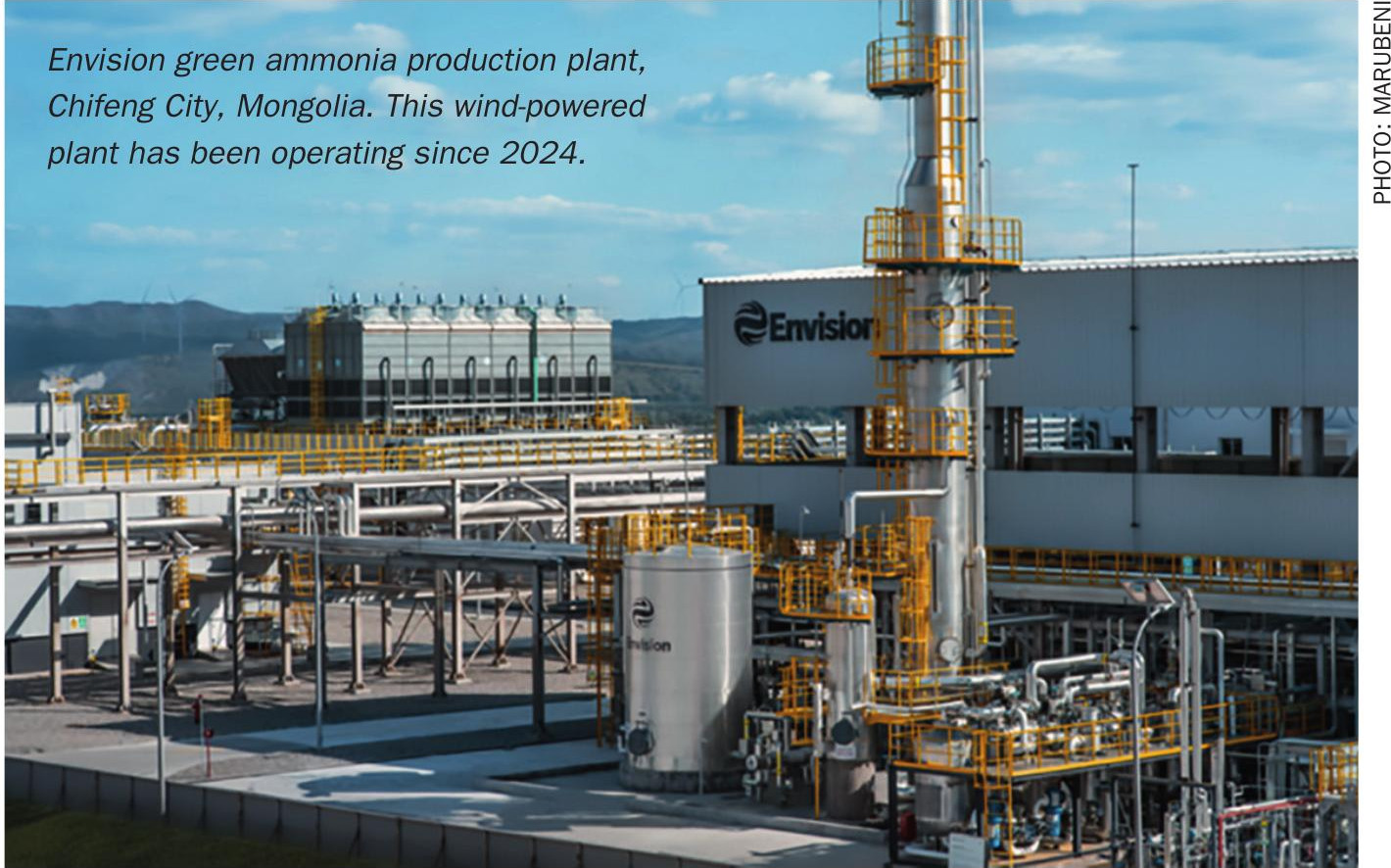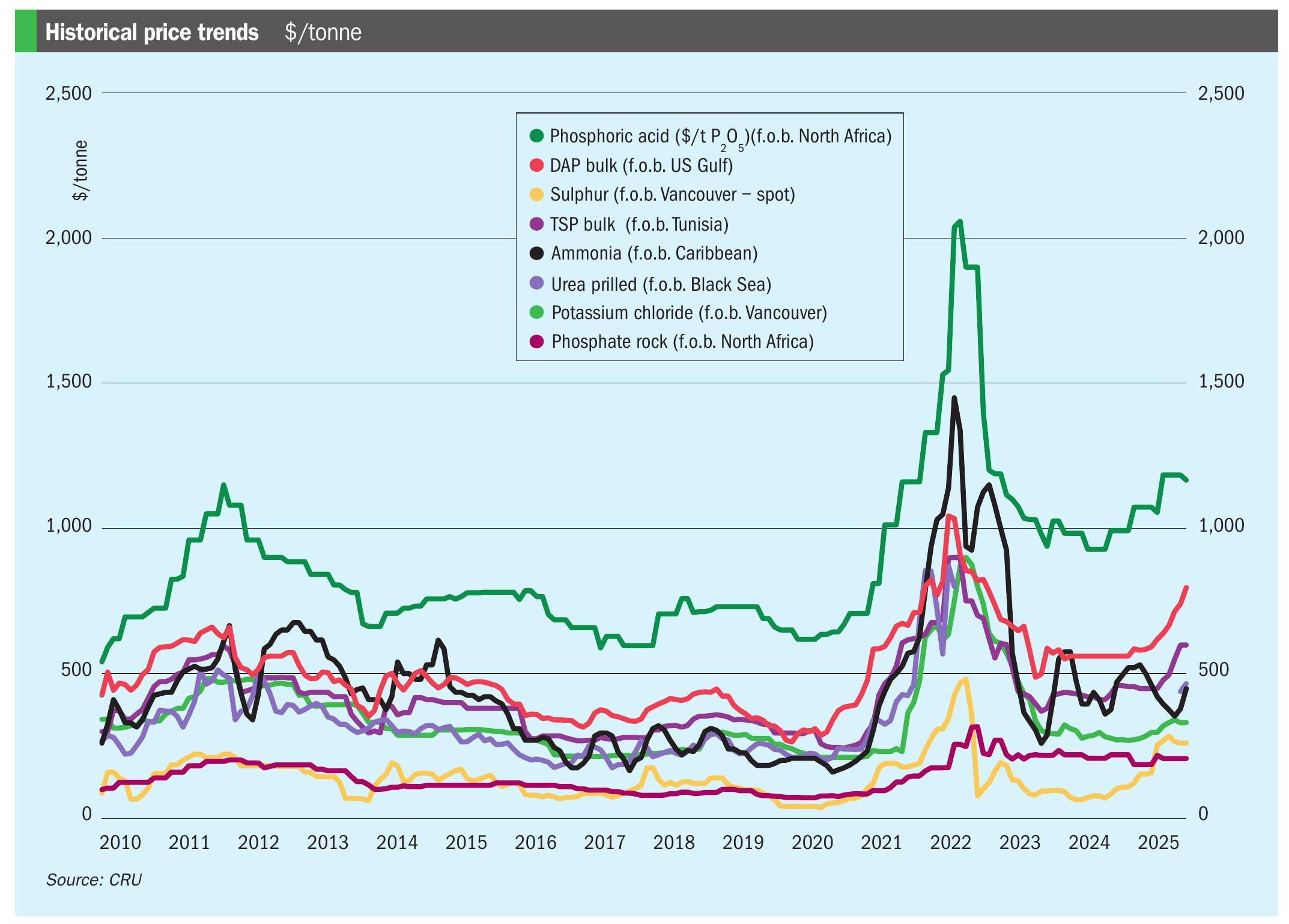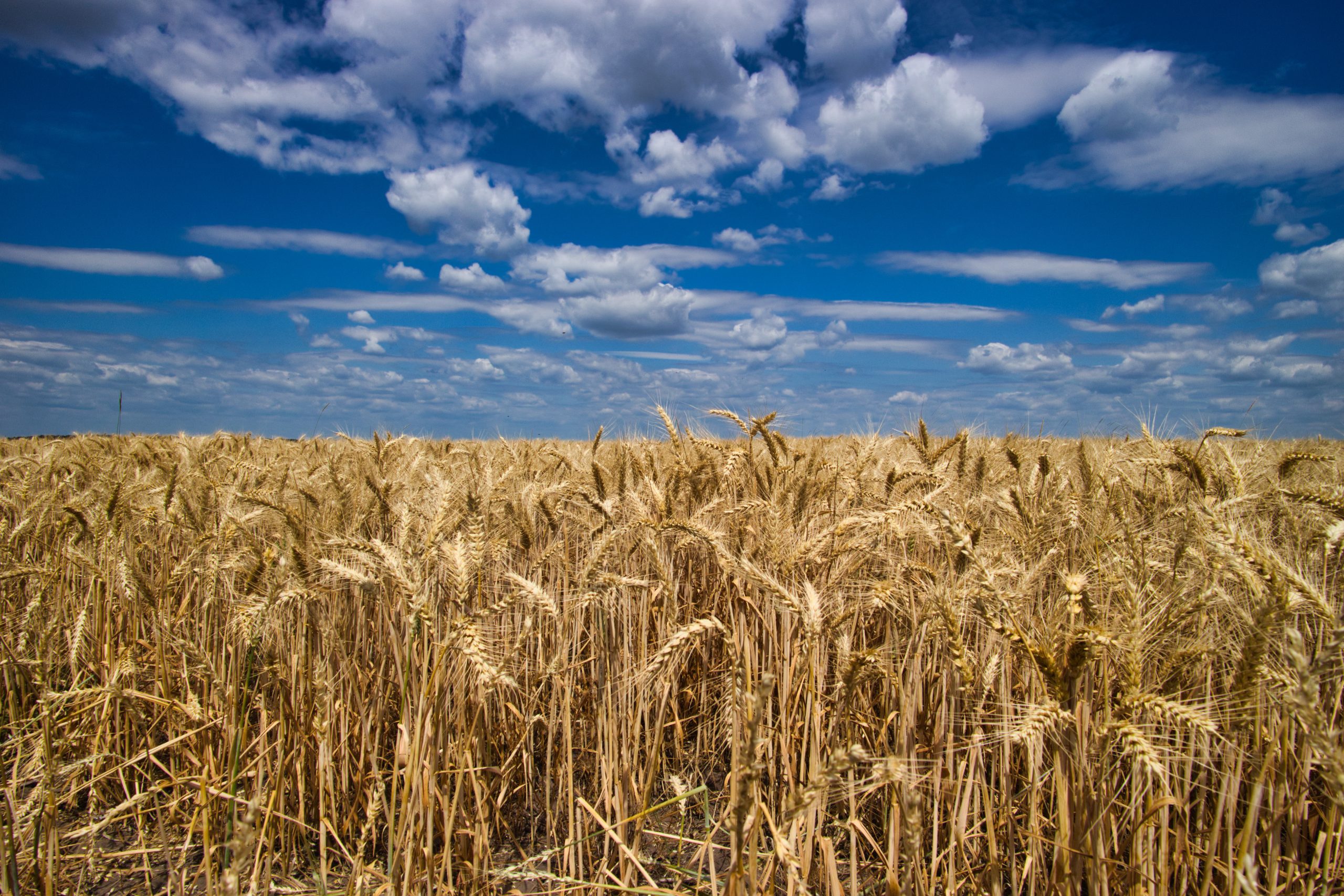Fertilizer International 498 Sept-Oct 2020

30 September 2020
Tessenderlo Kerley International partners with Kemira
BUSINESS UPDATE
Tessenderlo Kerley International partners with Kemira
Belgium-headquartered Tessenderlo Kerley International, a business unit of Tessenderlo Group, has entered into a new partnership with Kemira of Finland. The two companies have signed a long-term off-take agreement for the marketing and distribution of premium SOP (sulphate of potash) fertilizers.
Tessenderlo Kerley International has announced that in future it will offtake and market the premium water-soluble grade SOP produced by Kemira at its plant in Helsingborg, Sweden. The new deal strengthens Tessenderlo Kerley International’s position in the premium water-soluble segment of the speciality fertilizer market.
As part of this new agreement – which will commence and become fully operational at the start of 2021 – Tessenderlo Kerley International will additionally have access to part of Kemira’s standard powder grade SOP production output at Helsingborg as well.
Tessenderlo Kerley International is already a well-established leader in the fertigation and foliar segments of the SOP market, building on expertise dating back 100 years. The company is a top five global SOP producer – exporting to more than 90 countries from its production site in Ham, Belgium.
Geert Gyselinck, Executive Vice President of the Tessenderlo Kerley International business unit, explains the rationale behind the new partnership with Kemira:
“This long-term agreement is an ambitious step forward, enabling Tessenderlo Kerley International to grow and remain the leader in this premium water-soluble potassium sulphate market. Thanks to this contract, SOP customers around the world can now be ensured even more reliability of supply, access to highest quality product, and qualitative service and support. With Kemira, we partner with a SOP Mannheim producer who shares the same mindset towards continuous improvement and qualitative production.”

Tessenderlo Kerley International offers a complete line of SOP fertilizers and, as well as having local sales staff in most of the key markets for SOP, the company benefits from a worldwide team of 23 agronomy managers. This team carries out research and advises customers on the benefits and use of SOP, as well as the company’s range of liquid thiosulphate fertilizers.
SOP is predominantly used as a fertilizer for specialty crops such as flowers, fruits and vegetables. This type of potash delivers both potassium and sulphur to plants as readily available nutrients at high concentration. SOP’s very low salinity index also makes it the potash fertilizer of choice in those areas at risk from soil salinity.
Tessenderlo Kerley International celebrated 100 years of SOP production in 2019. To commemorate this landmark centenary, the company recently published a comprehensive book on the agronomic benefits of SOP (see page 54), the culmination of many years of research. n
Fertilizer International sat down with Tessenderlo Kerley International to discuss the new partnership with Kemira.
How will the offtake agreement benefit customers?
The agreement with Kemira increases the amount of premium water-soluble SOP that we can bring to market for the benefit of all customers. Being able to supply from two sites provides additional logistical flexibility for deliveries and enhanced output – something that is particularly important in periods of high demand.
Our agronomic team is widely recognised for its leading global expertise in SOP. All our customers will benefit from the team’s agronomic know-how, backed by even more reliable commercial support and efficient supply.
Which SOP product grades are we talking about?
The Helsingborg site currently produces two product grades: standard powder grade SOP – generally used for the manufacture of compound NPKs – and water-soluble fertigation grade SOP, which is generally sold directly into the market through distributors. Our plant at Ham, meanwhile, produces a comprehensive range of SOP products. That includes powder, granular and soluble grades, as well as a special grade – K-Leaf® – for foliar applications.
How is SOP manufactured?
Our SOP production unit at Ham and Kemira’s unit at Helsingborg both use the same Mannheim process. This converts sulphuric acid and potassium chloride (MOP) into potassium sulphate (SOP) and hydrochloric acid. The hydrochloric acid generated at both sites provides a source of raw materials for other production processes.
Why is Kemira producing SOP at Helsingborg?
Over the last couple of decades, Kemira has taken a step back from the fertilizer market, preferring to focus on other sectors instead. One of these is water treatment chemicals – which require hydrochloric acid as a starting material. For Kemira, the Mannheim process is therefore largely a means of producing hydrochloric acid, although Kemira was using the SOP generated alongside this to supply a number of clients under long-term contracts.
We also use the hydrochloric acid generated at our Ham site in Belgium in other processes, such as the production of calcium chloride.
Are both company’s SOP products of comparable quality?
Yes. Both of us produce high-grade SOP by the Mannheim process and have a reputation for supplying top quality products. In particular, the water-soluble grades produced by Tessenderlo and Kemira are among the most sought after for use in drip irrigation systems.
There are some minor differences in product characteristics. However, these will potentially allow Tessenderlo to better match the characteristics of supplied products to the specific needs of individual customers.
We also have customers in common. Several companies that use SOP to make compound NPKs already source material from both companies.
What volumes of SOP are covered by the agreement?
We will off-take and market the premium water-soluble SOP produced by Kemira at its Helsingborg plant. The agreement also provides us with access to part of Kemira’s standard powder grade SOP production output from the same plant.
When does the offtake agreement start?
At the beginning of 2021.
How will products produced at Helsingborg be branded in future?
Some commercial aspects of the offtake agreement are yet to be decided. The aim is to make the transition as smooth as possible for all customers. We obviously have a portfolio of well-known SOP product brands, and our goal is to further strengthen and protect their reputation. Some SOP will continue to be supplied in Kemira branded bags in the short term. But the long-term goal is to market and sell most SOP products under Tessenderlo Kerley International’s own brand names. Nevertheless, we will keep serving customers with private label branded bags and there are customers of both companies who will prefer to purchase SOP in big bags, particularly those who manufacture high quality water-soluble and liquid NPKs.
Will products produced at Ham and Helsingborg be priced differently?
We believe the range of SOP products produced at both sites are among the best quality available in the market. Both use the Mannheim process and hence manufacture SOP products with very similar characteristics. We intend, therefore, to apply one overall pricing strategy for all our water-soluble SOP products, irrespective of the production site. Having said that, variations in logistical costs, and shipping through local ports, may lead to small differences in SOP pricing between the two units.
How will this agreement enhance Tessenderlo Kerley International’s position in the market?
Today, the global market for SOP product is around seven million tonnes, with 55-60 percent of that volume coming from China. European producers currently account for only 20-25 percent of supply, much of this being incorporated by customers into NPK fertilizers for re-export to global markets.
Tessenderlo Kerley International was the first to introduce a truly soluble grade of SOP (SoluPotasse® ) back in the mid-1990s. This has remained the leading product in this market segment ever since. The world market for water-soluble SOP grew following the global economic crisis in 2009, with many existing SOP producers moving to increase production of this higher value grade. This trend also coincided with many new SOP producers entering the market, almost all offering water-soluble SOP grades. While the quality of water-soluble SOP varies widely from one producer to another, that manufactured by the Mannheim process in Europe remains the best quality available, in our view, with SoluPotasse® being the reference product in the market.
Kemira, similar to ourselves, has many years of experience of the Mannheim process and, consequently, the water-soluble SOP produced at Helsingborg is of very good quality. The opportunity to fully commercialise this product, alongside that produced in Ham, will allow us to maintain our market leading position in the premium water-soluble segment in response to increased competition.
The agreement to off-take Kemira’s production of water-soluble SOP means Tessenderlo Kerley International will become the largest global supplier of this premium SOP grade. This will allow us to continue to meet the needs of our customers even more reliably in future, in what is a growing market.






